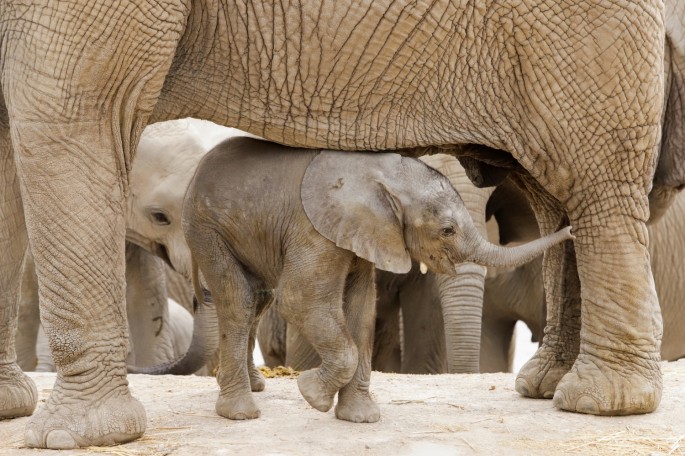African elephants living in forests and savannas are increasingly threatened with extinction, the Red List of species in trouble showed on Thursday, as conservationists called for an urgent end to poaching.
The new assessments by the International Union for Conservation of Nature underscore the persistent pressures faced by the two species of elephants in Africa due to poaching for ivory and human encroachment.
"We must urgently put an end to poaching and ensure that sufficient suitable habitat for both forest and savannah elephants is conserved," said Bruno Oberle, IUCN Director General.
The Swiss-based body's latest survey said the savanna elephant was "endangered" and the much smaller, lighter forest elephant was "critically endangered" - its highest category before extinction in the wild.
Previously IUCN had treated both elephants together which it considered as "vulnerable" but opted to separate them following genetic evidence that they are different species.
The IUCN cited data showing that the populations of Africa's savanna elephants found in a variety of habitats had decreased by at least 60% over the last 50 years while the number of forest elephants found mostly in Central Africa had fallen by 86% over 31 years.
Combined, around 415,000 remain, it said.
Despite the overall decline, some populations of forest elephants were rebounding due to successful conservation measures such as those taken by Gabon and Republic of Congo. In Southern Africa's Kavango-Zambezi Transfrontier Conservation Area, savanna elephant numbers were also stable or growing, IUCN said.
IUCN's latest assessment - the first of three annual updates - assessed 134,425 species of plants, fungi and animals of which more than a quarter are threatened with extinction.



























